Barishal the unspoilt
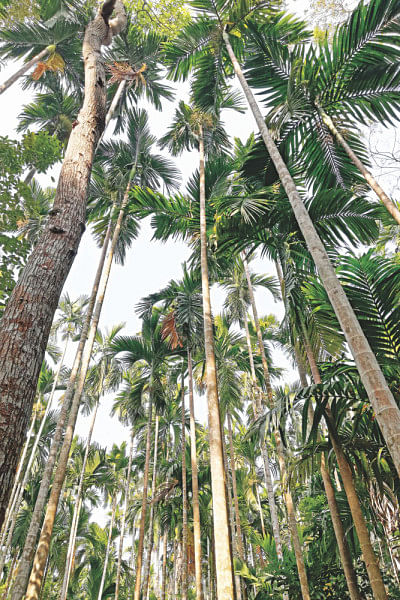
Legends speak of holy men travelling places carried by large fish, turtles, birds, carpets, animals, jinns, and such, but I am yet to hear of anyone travelling on the back of an Ilish. I can claim that though, as the last leg of our family trip from Dhaka to a small village in Mehendiganj area, was indeed on the MV Ilish, a small 'launch'—those loud motorised passenger boats that are such a common sight in the vast and numerous rivers of the Bangladesh's southern delta region that is Barishal.
A mad dash through Dhaka on Uber cars and a bike was how our trip began. As we city residents well know, there can be a start time for somewhere, but arrival on the given hour is practically a miracle. The huge new-looking 3-storeyed launch was sitting in the quay, supposedly to sail off at 8:30, and most of our group except two were still stuck somewhere in Gulistan. But since everyone is aware of these possibilities, we did make it to our cabins on the top floor of the launch that chilly winter night, and with some time to spare too, as it finally started off sometime after 9, and I was too excited to give a hoot about the time after making it to my desired destination, aka the seat beside the railing, overlooking the water. Best spot ever for these travels.
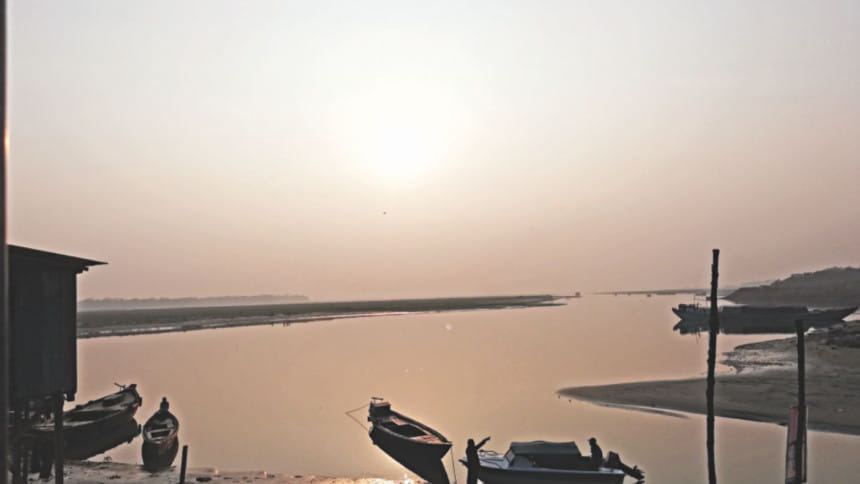
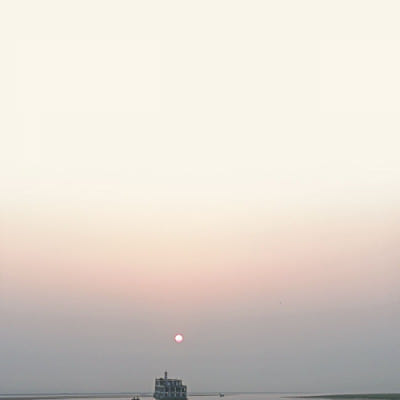
The poor Buriganga is dead and decaying, but later on as we sailed over the Sheetalakhya, then further onto the mightier rivers Padma, Meghna, and Kirtonkhola, the waves became more pronounced, the smell of the water more invigorating, and the night time peace deepened as did the hours.
Always the loudest bunch that is my family, first order of the night was to take care of dinner, since food on these launches is generally super yummy. We ordered different kinds of fish, like coral and pomfret, with vegetable, daal, and steaming hot rice, all of which was served fresh in about half an hour. Delish is the word for that experience.
The quiet fell over the launch as the night deepened, people retired back into their cabins, and I was finally alone beside the waves in the chilly winter night, enjoying the tranquillity that pervaded through my being for those precious few hours.
Early next morning, even before the sun was up, we were at the Barishal city jetty, deceptively quiet for all the activity going on. We moved our multitude of bags to the smaller vessel, the aforementioned fish namesake, and made our way to Patarhat, the tiny riverside not-quite-town. Further 15 minutes by a motorised tom-tom, and we arrived at the verdant hamlet I can claim to partly belong, for it is where my mother belongs.
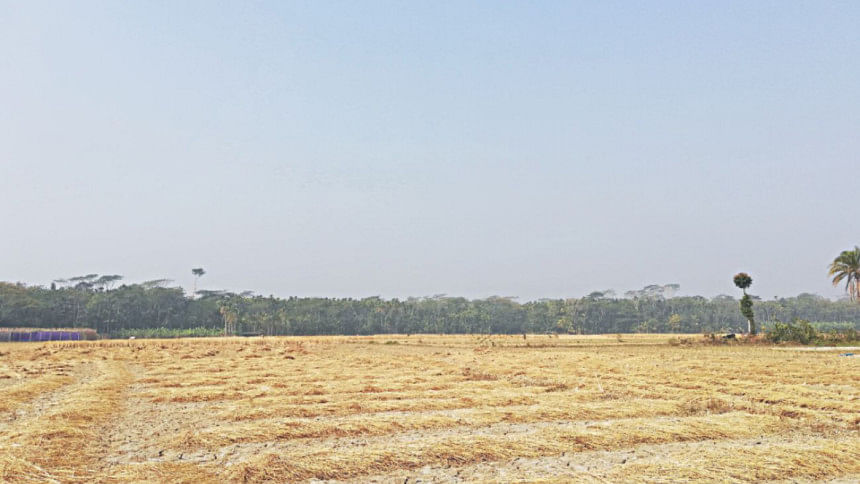
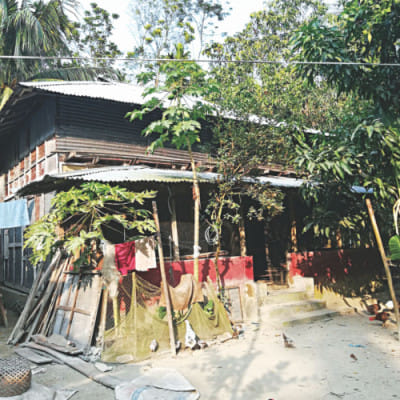
Barishal is a patchwork of peaceful looking rivers and brilliant emerald islands, sparsely spotted with people here and there, with villages quaintly tucked into the dense foliage. Every few steps you will find a pond, or a canal, or walk into the muddy remains of a seasonal creek. The 'bagan' as the locals call the wooded areas of areca, date, and palm trees, as well as a multitude of raintrees, look like patches of forests, and it is entirely possible for a city bum like me to get lost in there. The vast fields growing baby plants of paddy at the moment, were endless, and even the winter sun was too warm as we walked from one end to the other.
I find that side of the family to be very genuine, albeit extremely stubborn, but very welcoming. The couple of days we stayed there, it was a food fest, as it is the most tangible way of showering love in the grandma lore. Pithas for the jamai --that's my father and uncle-- and typical winter goodies like fresh veggies and duck bhuna, were presented warm every single meal. And old as I am, we were the grandkids visiting after so long, that the last time I was literally in baby frocks and shorts, prancing about in my embarrassingly short bob-- so you can imagine the comments and the love that went with those memories.
Anybody who has had fresh date juice in winter will attest to the heavenly nectar it reminds of, and after about a decade I got to taste that again. Unlike the last time when the village homestead was full of little cousins and my maternal uncles in their youth, and we got to walk out on a moonlit night and get the date juice fresh off the tree, this time it was a tamer experience, delivered to the dining table. But it was still as sweet. So was the green coconut, and I could not help but compare how bland Dhaka and its produce is in comparison.
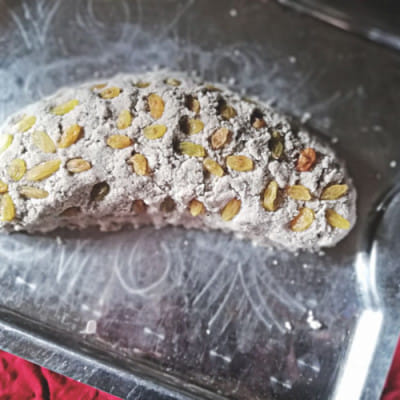
I made some new friends there, four legged fluffy ones. An adorable trio of roly-poly fuzzy puppies, and their gentle seemingly hungry mother, were also residents of the same compound. And although expected, it hurt that most people around were not very kind to these creatures in terms of sharing food or warmth, even though most of them had plenty of it. So anytime I was not walking about sometimes annoying or running after ducks, calves, chicks and such, I spent it with the puppies, coddling them to the contentment of my heart and theirs, if the tails wagging were any proof.
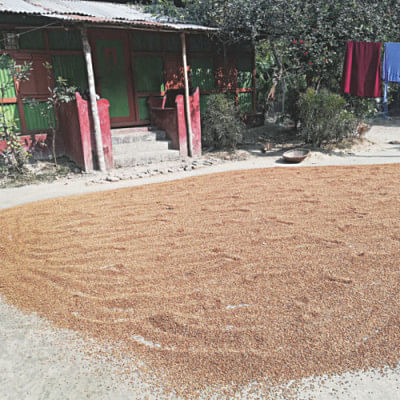
The days went by in a blur, the time allotted to the trip felt entirely inadequate, and even before we settled in, we were packing again to get back to our hectic normalcy in Dhaka. This time in reverse—tom-tom, small launch, the big launch again, and cars on the road of a sleeping Dhaka early in the morning.
The journey on the large launch was plush both ways, but while sitting on the one on the rickety-looking but sturdy smaller one, it was quaint and contemplative; as I sat on the cold bow cutting through quiet waters, in the chilly wind, watching birds returning home for the day, it made me think of all those people who braved these waterways on vessels smaller and more vulnerable, in days that were more uncertain, when distances were longer and more absolute, for me to be able to come back to a part of my heritage feeling somewhat like a foreigner, with renewed wonder in my eyes. This was not my first time in Barishal, and hopefully not my last, but I hope to never lose this sense of awe, so long as I live.
Photo: Sania Aiman

 For all latest news, follow The Daily Star's Google News channel.
For all latest news, follow The Daily Star's Google News channel. 



Comments